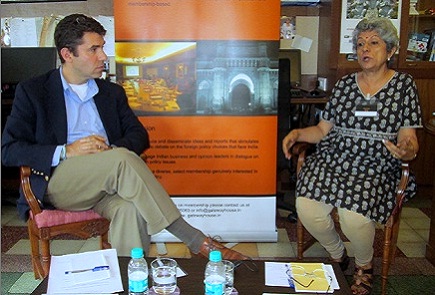
Historically, Western powers have meddled in the West Asia for more than a hundred years. As the Ottoman and Austro-Hungarian empires were disintegrating during the First World War, France and United Kingdom agreed upon respective spheres of influence in the region by creating several new countries and borders under the Sykes–Picot Agreement in 1916. This agreement reflected the geostrategic interests of the former colonizers including energy resources that had already been discovered in Arab lands. Kurdish regions were divided between Turkey, Iran, Iraq, and Syria. This arbitrary division of borders ignoring ethnicity, national and religious identities prepared a battleground for future strife along sectarian lines in West Asia. Even during the Cold War, the West Asia was a proxy battlefield field for NATO and the Soviet Bloc. Following the Arab awakening in Tunisia and Egypt, unrest manifested in oil rich Libya. A ‘’no-fly’’ zone was declared over Libya by the UN Security Council Resolution 1973 (2011). But the West violated the spirit of this Resolution by conducting airstrikes which many correctly see as a cover for regime change in Libya.
What are the near and long term future of the region, and the influence of the West. After Libya, can the U.S. be trusted to not carry out regime change in Syria? In Syria, will the Putin suggestion hold and what does Syria’s future hold? Since Syria has informed the UN that it will sign the Chemical Weapons Convention, should the U.S. contrive to threaten military action? Will the trio of Syria, Iran and Iraq enable the ‘Shia Crescent’ to dominate West Asia and what does it mean for the region? What role will Turkey, also experiencing internal pressures, play? How will energy in this region change its politics? Will a stable order emerge in the West Asia or will it get submerged in even more conflict?
On September 24, Gateway House hosted Dr. Steven Cook, Hasib J. Sabbagh Senior Fellow for Middle Eastern Studies, Council on Foreign Relations, in conversation with Ambassador Neelam Deo, Director, Gateway House, to discuss ‘Syria, Iraq and Regional Instability: The End of Sykes-Picot.’
Dr. Steven A. Cook is a Hasib J. Sabbagh Senior Fellow for Middle Eastern studies at the Council on Foreign Relations (CFR). He is the author of ‘The Struggle for Egypt: From Nasser to Tahrir Square,’ which won the Washington Institute for Near East Policy’s gold medal for the best book on the Middle East in 2012, and ‘Ruling But Not Governing: The Military and Political Development in Egypt, Algeria, and Turkey.’ He has been published widely in a variety of foreign policy journals, opinion magazines, and newspapers. He currently writes the blog, ‘From the Potomac to the Euphrates.’
Ambassador Neelam Deo is Director of Gateway House: Indian Council on Global Relations and former Ambassador to Denmark and former Joint Secretary for Myanmar, Sri Lanka, Nepal and Bangladesh.
Gateway House meetings are for members and special invitees only, and they are off-the-record and not-for-attribution. If you are interested in becoming a member, click here for more details.
